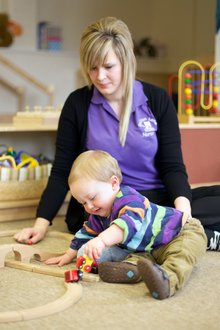The bond we share with our siblings can be a unique, life-long source of comfort and friendship. Siblings share a special connection, which when nurtured and developed can bring brothers and sisters together to share a lifetime of support and affection.
It’s every parents dream for their children to get along, and to be there to support and love each other as they grow. But on those days when the squabbles never seem to end, it can seem like an impossible fantasy! Here are our tips for helping your children become friends for life.
Lead by example
How many times have you heard words come out of your child’s mouth, and realised they sound just like you? We all want our children to speak to each other nicely, and the best way to achieve this is by speaking pleasantly to your children – and your partner – yourself. Children imitate the way that adults around them speak, and although it can be tricky when family life gets busy and exhausting, the more we try to talk to family members using a positive and upbeat tone and language, the more likely it is that our children will do the same.
Be fair, not equal
What’s the difference, I hear you ask? Well, it’s an important one. Your children are different ages, may be different genders, and have very different personalities and needs. So it would actually be very unfair to treat them in exactly the same way. What is important is that you treat them fairly. This means ensuring that they receive the same level of love, care and affection as each other, and that each child’s needs are taken equally into consideration when making family choices and decisions. Not every activity will be every child’s first choice, and not every dinner will be every child’s favourite meal. But while young children may often feel they’re being treated unfairly, these imagined slights will be soon forgotten, while genuine favouritism may rankle forever.
Give squabbles a little time
The things that siblings can squabble over is neverending. What your children argue about will vary hugely depending on their ages, the age gap between them and their genders, but one way or another, they will find something to disagree about most days. If it comes to blows, of course you’ll need to get involved to make sure no one is getting hurt. But a certain level of detachment from small, petty disagreements is no bad thing. It can be very annoying to hear whining and arguing going on in another room, but try leaving them for at least a few minutes to see if they can sort things out themselves, rather than weighing in at the first sign of discord. That way, they will learn about how to sort out conflict and reach compromises themselves.
Encourage conflict resolution
If an argument runs on, or gets nasty, and you really have to intervene, ask your children if they have any suggestions of their own for sorting out the squabble. You may be surprised – children like to be asked for their opinions, and may suggest a solution which would have been very unpopular if you’d suggested it yourself, such as taking it in turns to play with a favourite toy, or alternating their chosen activities.
Pass on some responsibility….
It’s nice for the older sibling to feel that they can sometimes be ‘in charge’, and it can help them to feel nurturing and caring towards their younger brothers and sisters rather than thinking of them as a nuisance. Perhaps suggest that the older one holds the younger one’s hand as they walk along the street, gives a kiss or a cuddle if they hurt themselves, or even tells them a story at bedtime.
…but not too much
Older children still need to be allowed to be little and irresponsible sometimes, and constantly letting your older child feel that they need to supervise the younger ones can sometimes weigh a bit too heavily. Make sure your older child has plenty of time to just play without worrying about whether their younger sister or brother is safe and happy.
Make time for time together, and time apart
It can be hard to find things that children of different ages will all enjoy doing, but it’s really important to spend time doing fun things together as a family to promote love and affection between your children. Although it may sometimes seem that siblings always end up squabbling if they spend time together, if you add up all the time that they spend having positive experiences compared to the time they spend squabbling, you will usually find that the good bits outweigh the bad by a considerable margin. Having said that, we all need time to ourselves, and your children need to feel that they are loved and appreciated as individuals, not just as ‘the children’ – so try and find time to spend with each child on their own doing something one-on-one, even if it’s just a few minutes each day.
Further information
Relate - how to reduce family arguements
Psychology Today - Healthy Sibling Relationships
Baby Centre - A parents' guide to helping siblings bond
Written for the Pre-school Learning Alliance by Siobhan Godwood.







